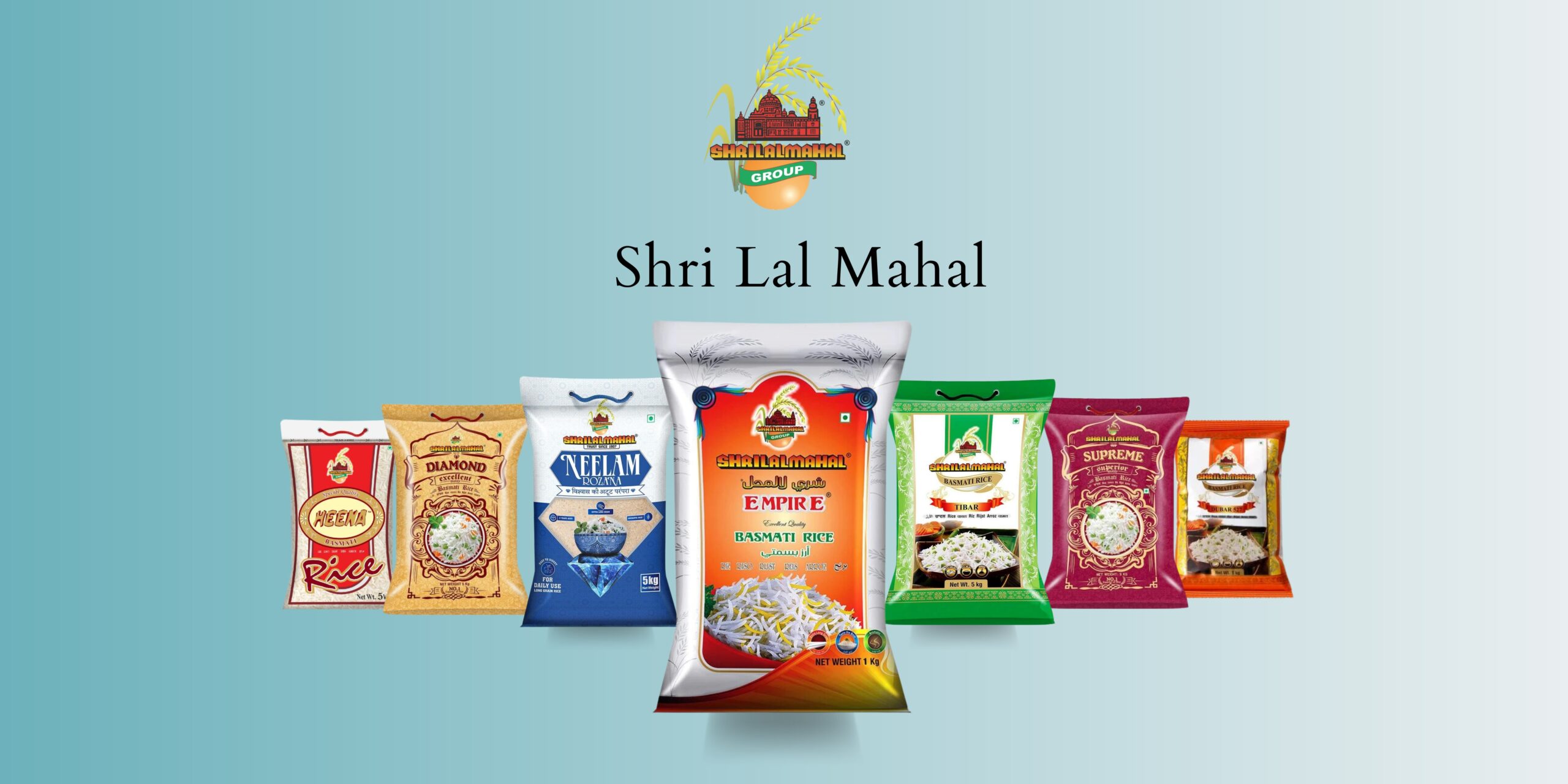
Shri Lal Mahal, a name synonymous with premium basmati rice, has a rich history and a legacy that spans centuries. To truly appreciate the significance of Shri Lal Mahal, it’s important to delve into its historical roots, the cultural importance of basmati rice, and how the brand has shaped the global rice market.
1. The Origins of Basmati Rice
Basmati rice, often referred to as the “queen of rice,” has been cultivated in the Indian subcontinent for thousands of years. Its name, derived from the Sanskrit word “Vasmati,” means fragrant or aromatic. The unique climate and soil conditions of the Himalayan foothills, particularly in regions of India and Pakistan, are ideal for growing basmati. The rice is cherished for its long grains, fluffy texture, and distinct aroma, making it a staple in traditional Indian and South Asian cuisine.
2. The Emergence of Shri Lal Mahal
Shri Lal Mahal Group was established in 1907, during the British colonial era in India. Founded by the visionary Shri Lal Chand Aggarwal, the company began as a small trading house in Old Delhi, specializing in the trading of food grains. Over time, Shri Lal Mahal earned a reputation for quality and trustworthiness, setting the foundation for what would become one of the largest rice exporters in the world.
The name “Shri Lal Mahal” itself evokes a sense of royal grandeur, which aligns with the brand’s commitment to providing only the highest quality basmati rice. The company’s dedication to excellence is evident in its careful selection of grains, modern processing techniques, and adherence to international standards.
3. Shri Lal Mahal’s Role in the Global Rice Market
Over the decades, Shri Lal Mahal has played a pivotal role in popularizing basmati rice across the globe. The brand’s commitment to quality and consistency has made it a preferred choice in households and restaurants worldwide. Shri Lal Mahal was among the first Indian companies to export basmati rice to the Middle East, Europe, and the Americas, helping to introduce this aromatic rice to a global audience.
The company’s ability to adapt to changing market demands while maintaining its heritage has been key to its success. Today, Shri Lal Mahal continues to expand its global reach, with products available in over 65 countries. The brand’s emphasis on sustainability and ethical practices further enhances its reputation as a leader in the rice industry.
4. Cultural and Social Impact
Basmati rice holds a special place in Indian culture, often featured in festive meals, weddings, and religious ceremonies. Shri Lal Mahal, through its high-quality offerings, has contributed to preserving and promoting this cultural heritage. The brand has become a symbol of tradition and authenticity, connecting people with the rich culinary history of the Indian subcontinent.
Moreover, Shri Lal Mahal’s impact extends beyond its products. The company is involved in various philanthropic activities, supporting education, healthcare, and community development initiatives. This commitment to social responsibility has further solidified its standing as a respected and cherished brand.
5. The Legacy Continues
As Shri Lal Mahal enters its second century, the brand continues to innovate while staying true to its roots. The introduction of organic basmati rice and other specialty products reflects the company’s dedication to meeting modern consumer needs. Shri Lal Mahal remains a beacon of quality, tradition, and trust, carrying forward a legacy that began over a century ago.
In conclusion, the historical significance of Shri Lal Mahal is not just in its longevity but in its unwavering commitment to excellence. From its humble beginnings in Old Delhi to becoming a global leader in the rice industry, Shri Lal Mahal’s journey is a testament to the enduring appeal of basmati rice and the brand’s role in preserving this treasured part of India’s culinary heritage.